Dogs enjoy eating. They perform tricks for treats, savour wet and dry food, and even bring out their puppy eyes when they want to taste what you're eating.
Dogs love to eat, which is why it's always worrying when they ignore their food bowl when presented with a yummy meal.
As a paw parent, your first instinct may be to assume something is wrong, especially if you have a voracious eater. Still, don't panic since a lack of appetite can be attributed to various factors. Let's check them out.
Why Is My Doggy Not Eating Their Meals?
Your Dog May Be Sick
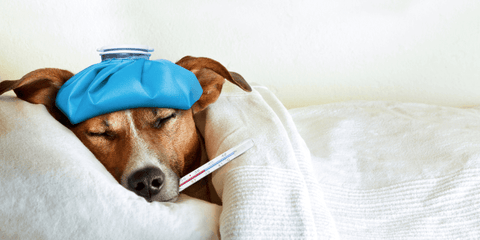
Do you remember the last time you fell ill? You likely didn't have much of an appetite and chose to sleep instead of eat. Dogs are like you in that regard. When they're sick, their bodies are more focused on recovering, so they may not feel like eating.
A lack of appetite is hugely worrying, especially if your pet is lethargic, but remember that not all illnesses are severe. Before going to the veterinarian, check for other symptoms since these can tell you more about your pup's condition.
Some signs to keep an eye out for are:
- Diarrhoea
- Vomiting
- Fever
- Bloating
- Excessive thirst
- Runny eyes or nose
- Breathing issues
If your pup doesn't display any of the symptoms and simply doesn't want to eat, offer them adequate support by trying any of the following:
- Clean their water source and provide fresh water
- Heat their food up
- Add dog-safe vegetable broth to kibble
- Switch dry food with wet food (If your pup typically eats kibble)
- Crumble Dr. Shiba Happy Tummy treats on dog food
- Replace kibble with boiled, seasonless chicken
Your Dog May Be Stressed
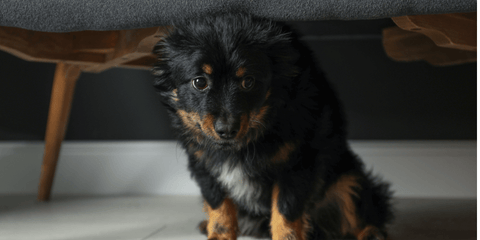
Stress is another factor to consider when your pup isn't eating. Dogs who undergo routine changes, visit unfamiliar locations, or even undergo agitating checkups at the vet may feel so stressed that they cannot eat.
If your pup hasn't experienced these lately, consider recent events your dog has gone through to determine their stressors. Removing these stressors may leave your pup more comfortable, allowing them to eat properly.
Aside from removing their stressors, you can also:
- Create a safe space for them, away from visitors and noise
- Offer them calming treats like Peaceful Paws
- Ensure they exercise regularly to help manage stress
- Give them enrichment items, like squeaky toys and chew bones
Your Dog May Have Dental Problems
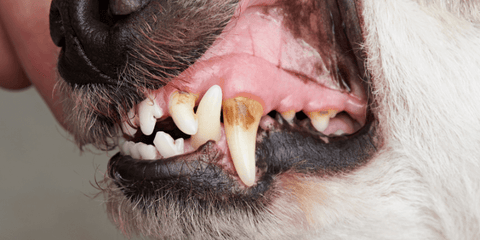
Have you ever had a toothache? The pain from the experience may have left you grumpy and unable to eat. The same can happen to your up if they're suffering from dental problems.
Doggy dental problems can be as minor as bad breath and discoloured teeth or as severe as gingivitis and perioditis. A healthy oral routine can easily avoid these issues. Still, if your pup suffers from dental problems, you want to have them checked immediately.
In the meantime, give your dog soft, warmed food and try to feed them with a spoon if they avoid their bowl. Broth with mashed vegetables may also entice your pup if their regular meal doesn't work.
Your Dog May Not Like Their Food
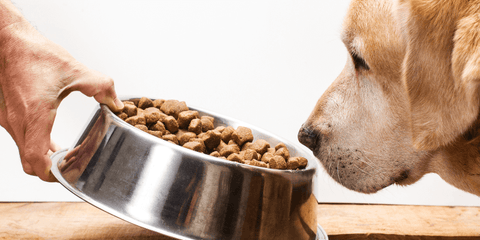
The answer to the question, "Why is my pup not eating?" may be as simple as "They don't like their food." Just like humans, dogs can be picky eaters. They enjoy kibble and wet food, yes, but they can get tired of it, too.
If your furry friend turns their nose up at meals that they used to savour, consider mixing things up every once in a while. Now, we're not saying that you should always change dog food brands when your pup acts out, but giving them variety can help refresh their interest in food.
To address the pickiness, try any of the following:
- Mix fresh ingredients like vegetables and boiled chicken into dry food
- Replace kibble with wet food for one meal
- Check the expiration date in case the food has gone bad
- Add crushed supplement treats like Happy Tummy to their meals
- Consider switching to homemade dishes or a raw diet
Remember, patience is crucial during this period since sudden changes to your dog's diet may lead to an upset stomach. Observe your pet's reactions to different food options over a week so you can find the best meal plan that suits their taste and provides the necessary nutrients for their overall well-being.
Your Dog May Miss You
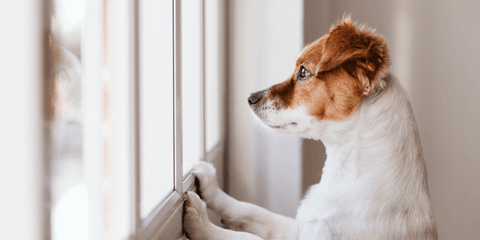
Dogs are incredibly social animals, and their emotional well-being can impact their eating habits. If your dog seems disinterested in their meals, it might be because they miss your company or are experiencing separation anxiety.
To help your dog overcome this emotional hurdle, consider the following:
- Quality Time Together: Spend quality time bonding with your furry friend. Whether through play, walks, or simply cuddling on the couch, reinforcing your connection can ease loneliness.
- Establish Routine: Dogs thrive on routine. Having a consistent daily schedule can provide a sense of security and reduce stress.
- Interactive Toys: Keep your dog mentally stimulated with interactive toys that dispense treats. This not only engages their mind but also associates positive experiences with mealtime.
- Comfort Items: When you're away, leave familiar scents, such as an unwashed item of clothing, with your dog. These items can provide comfort and reassurance in your absence.
By addressing your dog's emotional needs and ensuring they feel secure and loved, you can positively impact their appetite and overall well-being.
Your Dog May Be Full
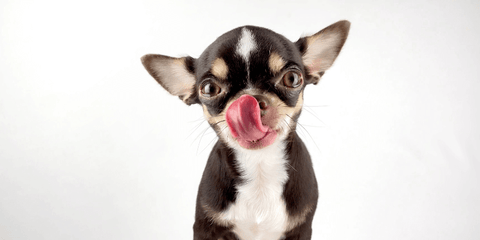
Sometimes, there is no underlying issue behind your pup's lack of appetite. It's possible that your fur baby just has a full belly and would rather eat at a later hour.
In these cases, you want to double-check your dog's feeding schedule and food measurement. Doing so can give you a better idea if your pup is eating enough during mealtimes or if you have to adjust when or how much they eat.
While you want to indulge your fur baby, you should also help keep them in a proper schedule, especially for mealtimes, given that dogs thrive off routine, and not following a designated time may lead to your pup asking for food too late in the night or too early in the day.
What Should I Do When My Dog Isn’t Eating?
When your precious fur baby refuses to eat, you may feel nervous and worried for their health. Still, avoid jumping to conclusions since it's not always a major issue.
Here are some things you can do when your dog isn't eating.
Monitor for Other Symptoms
Suppose your dog isn't full or being picky. In that case, the lack of appetite may stem from other issues, so carefully observe for any signs of illness. Some to watch out for are lethargy, diarrhoea, and vomiting. If you notice these symptoms, visit the vet clinic immediately.
Assess Their Food and Feeding Routine
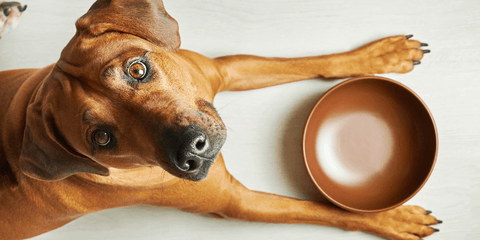
Sometimes, the problem is with the food itself, so assess your pup's feeding schedule, current food choice, and even the condition of their feeding bowls. If you want to try a new diet, transition gradually and follow guidance from your vet to ensure a balanced diet.
Evaluate Their Dental Health
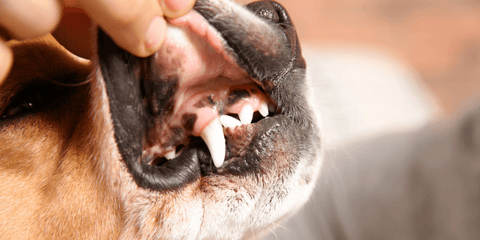
Check for signs of dental problems, such as bad breath, discoloured teeth, or difficulty eating. If dental issues are suspected, consult with your vet for a thorough examination and appropriate treatment.
Address Emotional Needs
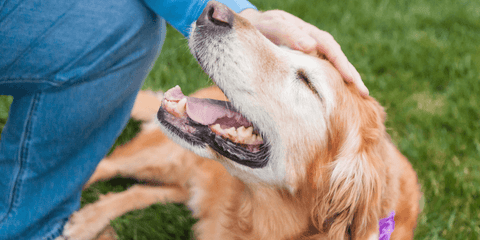
Some dogs refuse to eat when they're upset or miss their owners. If you have the time, bond with your pup at home, perhaps play with them or go on walks. When leaving for long trips, offer items with your scent to comfort your dog while you're away.
Consult with a Veterinarian
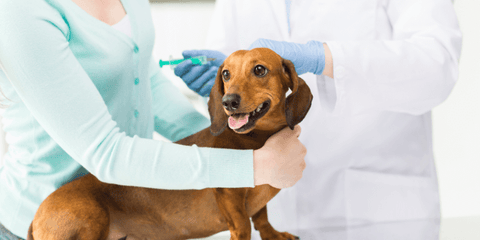
If your dog still refuses food or displays concerning symptoms, seek professional advice from a veterinarian. Share observations about their behaviour, appetite changes, and other relevant information for a comprehensive assessment.
Medical Tests and Treatments
Be prepared for your vet to recommend diagnostic tests, such as blood work or imaging, to identify potential health issues. Additionally, diligently follow any prescribed treatments or medications to support your dog's recovery.
Final Thoughts
Understanding the underlying cause of your fur baby's loss of appetite takes time and effort. There are moments when you will need a combination of extensive observation, dietary adjustments, and professional guidance.
But anything for our beloved dogs, right?

Consider incorporating more Dr. Shiba supplement treats into your pup's diet to help with its appetite and overall health. Our Quadruple Care bundle is the ultimate choice since it comes with Happy Tummy, Pro Immune, Jolly Joints, and Silky Fur. Talk about a comprehensive nutrition boost! Buy now.

